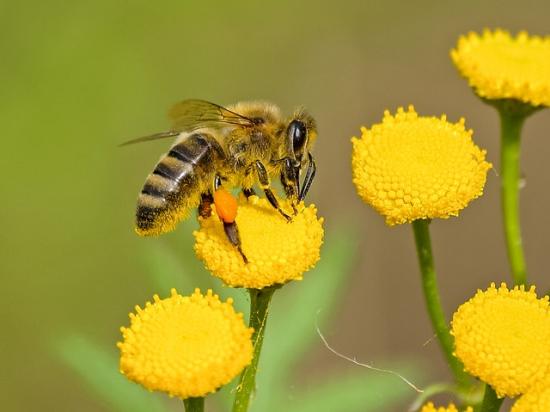
How you can keep bees from becoming endangered
The way we live is threatening some of the world’s most productive agricultural workers.
Our health is intrinsically linked to the health of the planet, keeping the system in balance. Throw one thing off, and it can have disastrous consequences. We need to embrace sustainability.
Pollinators — including bees, butterflies, moths, bats, birds, beetles and other insects — contribute roughly $500 billion a year to global food production, said Reed Johnson, a researcher in Ohio State’s Department of Entomology.
Of that list, Johnson explained, the bee is one of the most important pollinator species to our food security and ecosystems.
Bees are responsible for pollinating about one-third of the world’s food supply. In the United States, honey bees alone provide pollination services valued at $15 billion to $20 billion annually.
There are more than 1,000 plants grown for food, spices, beverages, medicines and fibers that require pollination. Without the help of bees, the world would be without such well-loved foods as chocolate, coffee, peaches, almonds, tomatoes, blueberries, strawberries, apples, pumpkins, melons, vanilla and many other fruits, nuts and vegetables.
Johnson and other pollination experts throughout the world are unsettled, though. Bee populations in the United States are declining at a rapid, unprecedented rate. Since 2006, commercial beekeepers in the United States have reported honey bee colony loss rates averaging 30 percent each winter — startling, when compared to historical loss rates of 10 to 15 percent.
Native bee species such as bumble bees are suffering as well. The rusty patched bumble bee, native to Ohio, has suffered a serious enough decline that it was officially added to the endangered species list in early 2017.
Four ways to keep the bee population healthy
What is causing these profound losses?
“Urbanization, changes in the way we live and increased use of herbicides, insecticides and pesticides have all contributed to loss of bees,” Johnson said.
Pollinator decline is a big, complicated problem. But actually, it’s by no means unsolvable. Since a large part of the decline of bees is being caused by human actions ― pesticide use, urbanization and more ― it can be reversed by humans, too.
Here are four easy and effective ways you can do your part to help keep bee populations in your area healthy.
Click here to read 4 ways you can keep bees — and yourself — healthy







